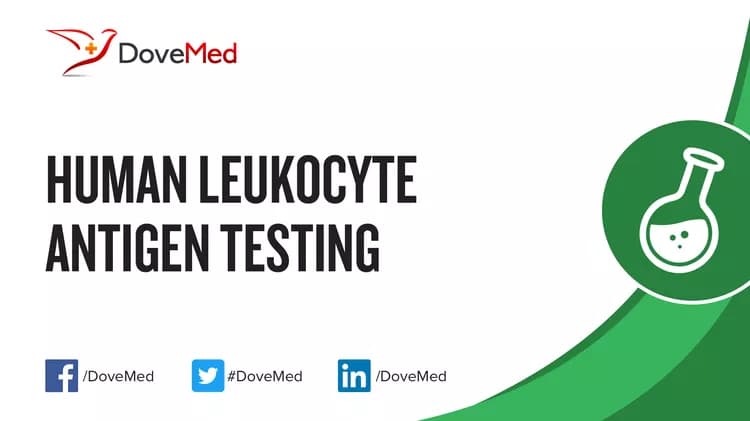What are the other Names for this Test? (Equivalent Terms)
- Histocompatibility Test
- HLA Antibody Identification Test
- Tissue Typing Test
What is Human Leukocyte Antigen (HLA) Testing? (Background Information)
- Human leukocyte antigen (HLA) proteins are immune complexes on the surfaces of most human cells. They are recognized by the cluster of differentiation (CD) proteins on the surfaces of certain white blood cells, called T lymphocytes
- In non-humans, HLA proteins are called major-histocompatibility (MHC) complexes. More information is available about MHCs than HLAs, because non-human immune systems are less complex and easier to study than human immune systems
- The MHC class I equivalents of HLAs include HLA-A, HLA-B, and HLA-C. They are present on all cells with a nucleus and they display samples from a cell’s internal environment to cytotoxic T cells
- Cytotoxic T cells contain CD8. If they detect abnormalities in the HLA-A/B/C-displaying cell, they destroy it. Cytotoxic T cells constitute the body’s cell-mediated immunity, which defends from threats by virus-infected and cancerous cells
- The MHC class II equivalents of HLAs include HLA-DP, HLA-DM, HLA-DOA, HLA-DOB, HLA-DQ, and HLA-DR. They are present only on the surfaces of cells that are active engulfers, or phagocytes, of other cells. These cells display fragments of what they have engulfed to helper T cells. Helper T cells contain CD4 and they activate B cells to mount an immune response. They also produce memory cells
- The HLA system is especially important, when it comes to organ transplants. Each individual’s organ cells display HLA-A/B/C, to which his or her immune system has become accustomed. However, in an organ recipient these HLA proteins may trigger an immune reaction and lead to rejection of the organ
- The Human Leukocyte Antigen Testing identifies the HLAs present on donor organs and the HLAs on a potential recipient, in order to maximize compatibility and minimize risk of rejection. HLA Testing is also used to identify anti-HLA antibodies in a recipient that may trigger an immune reaction and lead to organ rejection
What are the Clinical Indications for performing the Human Leukocyte Antigen (HLA) Testing?
Following are the clinical indicators for performing Human Leukocyte Antigen (HLA) Testing:
- Identifying the HLA profile of a potential organ recipient, to facilitate search for a compatible donor
- Testing the compatibility of an organ donor, so as to minimize the risk of rejection
How is the Specimen Collected for Human Leukocyte Antigen (HLA) Testing?
Following is the specimen collection process for Human Leukocyte Antigen Testing:
Sample required: Blood or cheek swab
Process:
- Insertion of a needle into an arm vein (blood)
- Gently scraping the inside of the mouth with a sterile swab resembling a Q-tip (cheek swab)
Preparation required: No special preparation is needed prior to the test.
What is the Significance of the Human Leukocyte Antigen (HLA) Testing Result?
Low compatibility between the human leukocyte antigen (HLA) profile of a donor and the recipient may indicate an increased risk for organ rejection.
The laboratory test results are NOT to be interpreted as results of a "stand-alone" test. The test results have to be interpreted after correlating with suitable clinical findings and additional supplemental tests/information. Your healthcare providers will explain the meaning of your tests results, based on the overall clinical scenario.
Additional and Relevant Useful Information:
- Immunosuppressants, such as cyclosporine and methotrexate may be administered to dampen the immune system of an organ recipient in preparation for receiving an organ. Though this decreases the risk of immune reactions, it is at the expense of lowering the individual’s immune system’s protective ability
- HLA Testing is sometimes performed to identify certain genetic disorders that occur due to mutations in HLA genes. For example, HLA-B27 is a mutation of the HLA-B gene. Its presence is associated with several disorders, such as psoriatic arthritis and Reiter’s syndrome
Certain medications that you may be currently taking may influence the outcome of the test. Hence, it is important to inform your healthcare provider, the complete list of medications (including any herbal supplements) you are currently taking. This will help the healthcare provider interpret your test results more accurately and avoid unnecessary chances of a misdiagnosis.
Related Articles
Test Your Knowledge
Asked by users
Related Centers
Related Specialties
Related Physicians
Related Procedures
Related Resources
Join DoveHubs
and connect with fellow professionals


0 Comments
Please log in to post a comment.